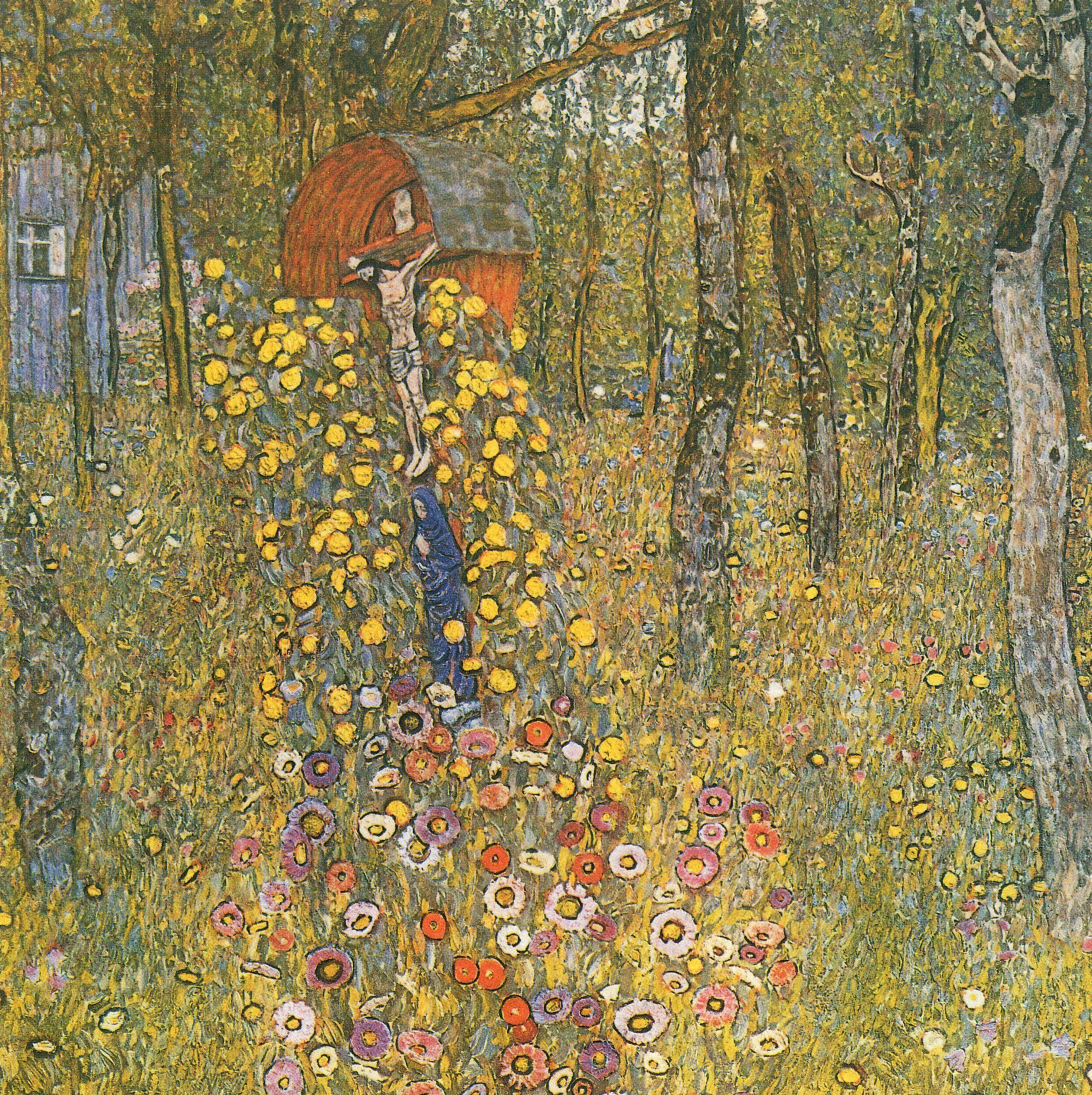Description
The Farm Garden with Crucifix is a masterpiece of the famous Austrian painter Gustav Klimt. Dating from 1913, this painting is a perfect example of Klimt's artistic style, characterized by his use of decorative patterns, vibrant colors, and meticulous attention to detail.
The composition of the painting is impressive, with a lush garden stretching towards the horizon and a crucifix rising majestically in the center of the image. Klimt uses a layering technique to create a sense of depth and texture in the painting, making the viewer feel as if they are walking through the garden.
Color is another prominent aspect of this artwork. Klimt uses a bright, saturated color palette, which contrasts with the darker tones of the crucifix. Gold and yellow tones are especially prominent in the painting, giving it an air of opulence and wealth.
The story behind the painting is equally fascinating. Klimt painted this work for the Secession Palace in Vienna, an institution that promoted modern art and culture in Austria. The painting was a great success and became one of Klimt's most famous works.
There are some lesser known aspects of this painting that are also interesting. For example, Klimt is believed to have been inspired by the gardens of the Schönbrunn Palace in Vienna to create the image of the garden in the painting. Also, the crucifix in the center of the image is a reference to the Catholic religion, which was an important part of Austrian culture at the time.

